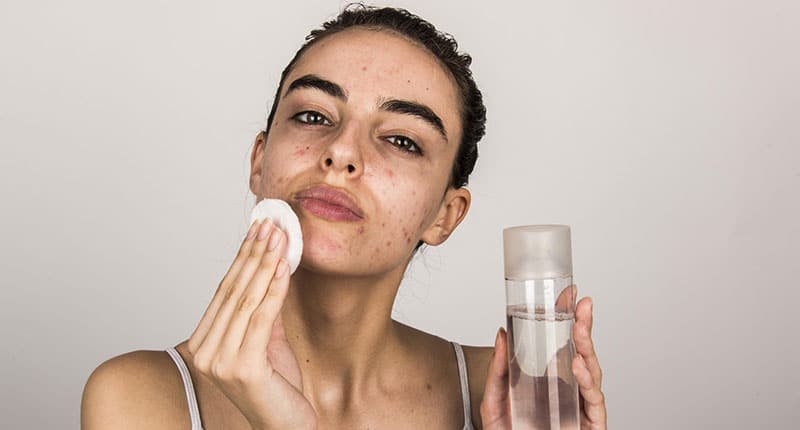Acne is a common skin condition that affects millions of people worldwide. It can be frustrating and disheartening to deal with breakouts, but with the right skincare routine, you can take control of your acne and achieve clearer, healthier-looking skin. In this article, we will guide you through the process of mastering your acne skincare routine, providing you with valuable tips and insights to help you combat this pesky problem.
Dealing with acne can be challenging, but by implementing a comprehensive skincare routine, you can effectively manage and improve your skin’s condition. This article will walk you through the essential steps and techniques to help you master your acne skincare routine.
Understanding Acne
To develop an effective skincare routine, it’s crucial to understand what causes acne. Acne occurs when hair follicles become clogged with oil, dead skin cells, and bacteria. Hormonal changes, genetics, stress, and certain medications can contribute to acne formation. By grasping the underlying causes, you can tailor your skincare routine accordingly.
Identifying Your Skin Type
Before establishing a skincare routine, it’s important to determine your skin type. Common skin types include oily, dry, combination, and sensitive. Understanding your skin’s unique characteristics will enable you to choose suitable products and treatments to address acne effectively.
Building a Daily Cleansing Routine
A crucial step in your acne skincare routine is cleansing your face twice a day. Use a gentle cleanser that is specifically formulated for acne-prone skin. Avoid harsh scrubbing, as it can irritate the skin and worsen acne. Remember to cleanse in the morning and before bed to remove impurities, excess oil, and makeup.
Incorporating Effective Acne Treatments
To combat acne, incorporate effective treatments into your routine. Look for products that contain ingredients like benzoyl peroxide, salicylic acid, or tea tree oil, as they can help reduce inflammation, unclog pores, and kill acne-causing bacteria. However, be cautious not to overuse these products, as they can cause dryness or irritation.
Hydrating and Moisturizing Your Skin
Contrary to popular belief, moisturizing is essential even for acne-prone skin. Opt for oil-free, non-comedogenic moisturizers that provide hydration without clogging pores. Proper hydration and moisturization help balance the skin’s oil production and prevent excessive dryness or oiliness.
Protecting Your Skin from the Sun
Sun protection is crucial for maintaining healthy skin, especially when dealing with acne. Choose a broad-spectrum sunscreen with an SPF of 30 or higher and apply it daily. Sunscreen helps prevent sunburn, reduces the risk of acne scarring, and protects your skin from harmful UV rays.
Adopting a Healthy Lifestyle
In addition to an effective skincare routine, adopting a healthy lifestyle can greatly contribute to managing acne. Make sure to maintain a balanced diet, rich in fruits, vegetables, and whole grains. Avoid excessive consumption of sugary and processed foods, as they can exacerbate acne. Regular exercise, stress management techniques, and getting sufficient sleep also promote healthy skin.
Avoiding Common Mistakes
When dealing with acne, it’s important to avoid common skincare mistakes. Avoid touching your face frequently, as it can transfer bacteria and irritate the skin. Refrain from squeezing or popping pimples, as it can lead to scarring and further inflammation. Additionally, be cautious with hair products that can potentially clog pores when they come into contact with the face.
Seeking Professional Help
If your acne persists or worsens despite your best efforts, it may be beneficial to seek professional help. Dermatologists specialize in treating various skin conditions, including acne. They can provide personalized advice, prescribe medications, and recommend advanced treatments tailored to your specific needs.
Conclusion
Mastering your acne skincare routine requires a holistic approach that encompasses understanding your skin, adopting effective cleansing and treatment techniques, and maintaining a healthy lifestyle. By following the tips and guidelines provided in this article, you can take charge of your acne and achieve clearer, healthier-looking skin.
FAQs
Q1: Can certain foods cause acne?
- While no specific foods directly cause acne, some studies suggest that high-glycemic foods and dairy products may contribute to acne breakouts in certain individuals. It’s advisable to monitor your diet and identify any potential triggers.
Q2: How long does it take to see results from an acne skincare routine?
- Results may vary depending on the individual and the severity of acne. Generally, it can take several weeks to notice significant improvements. Consistency and patience are key when implementing a skincare routine.
Q3: Should I exfoliate if I have acne?
- Exfoliation can be beneficial for acne-prone skin, but it should be done with caution. Use gentle exfoliants and avoid scrubbing too vigorously, as it can cause irritation and worsen acne. Consult with a dermatologist for personalized advice.
Q4: Are natural remedies effective for treating acne?
- Some natural remedies, such as tea tree oil or aloe vera, have shown potential benefits in managing acne. However, their effectiveness may vary, and it’s important to use them alongside proven acne treatments. Consult with a dermatologist before relying solely on natural remedies.
Q5: Can stress worsen acne?
- Stress can potentially worsen acne due to hormonal changes it triggers. Managing stress through techniques like exercise, meditation, and adequate sleep can contribute to better skin health.
